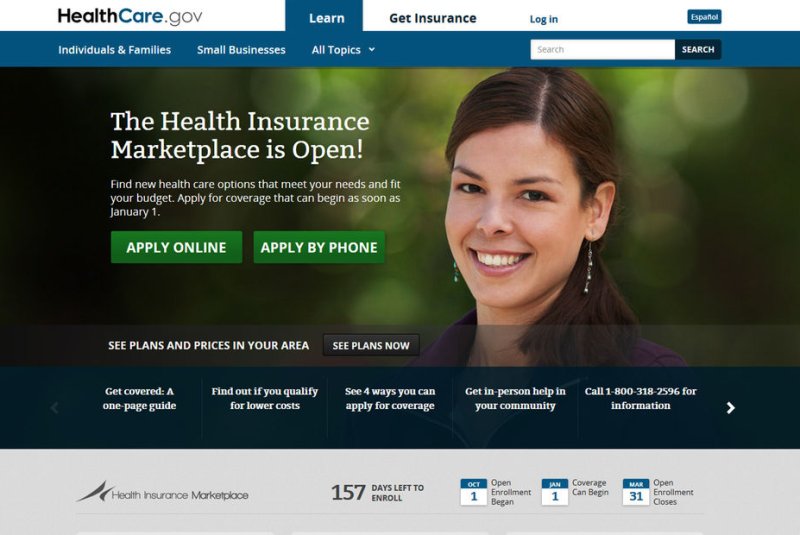Researchers found that people were more likely to buy expensive plans for themselves, costing them on average $611. The study highlights the difficulties encountered when using a mass delivery system like HealthCare.gov. UPI |
License Photo
More than 80 percent of consumers will incorrectly estimate their needs and will end up paying for a higher cost plan than needed, according to research conducted at Columbia Business School.
Researchers conducted six experiments asking people with varied educational qualifications to chose the the most cost-appropriate health plan for themselves. They found that on an average consumers would lose $611 by choosing the wrong plan, costing the American taxpayer an additional $9 billion as many of these plans will receive federal subsidies.
"Consumers' failure to identify the most appropriate plan has considerable consequences on both their pocketbooks as well as the cost of the overall system," said Eric Johnson, co–author of the report and professor at Columbia Business School, in a statement.
Even when participants were offered incentives to make the right choice, 79 percent still chose the wrong plan paying on average an additional $419.
But Johnson is quick to point out that this study, published in the journal PLOS ONE, should not be used in the political bickering surrounding the healthcare exchanges and the Affordable Care Act. He suggests that the research be used to understand the complexities involved in creating these delivery systems like the healthcare exchanges.
The research suggests that estimating your needs before going to the website will help you chose the right plan. Pop-ups and tutorials can help consumers understand complex terminology and limiting the number of choices will help reduce the confusion among consumers. Some states like Utah are offering consumers 99 plans to chose from.
"If consumers can't identify the most cost-efficient plan for their needs, the exchanges will fail to produce competitive pressures on healthcare providers and bring down costs across the board, one of the main advantages of relying upon choice and markets," said Johnson.
[PLOS ONE]







